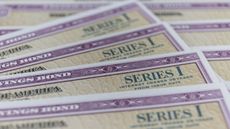
-

Best Cheap Stocks to Buy Now (Under $10)
-

Considering Purchasing and Renting a Property in Italy?
-

Disney Stock Dives After Earnings. Here's Why
-

What You’ll Pay for Medicare in 2024
-

Best Online Brokers and Trading Platforms
online brokers -

Free (or Cheap) College for Seniors and Retirees in All 50 States
retirement
Get Kiplinger Today newsletter — free
Profit and prosper with the best of Kiplinger's advice on investing, taxes, retirement, personal finance and much more. Delivered daily. Enter your email in the box and click Sign Me Up.
Investing
-

Stock Market Today: Stock Rally Runs Out of Steam
A sharp post-earnings selloff for Walt Disney stock kept a lid on the Dow Tuesday.
By Karee Venema Published
-

Datadog Earnings Overshadowed By Leadership Shift: What To Know
Datadog stock is down after beating expectations for its first quarter and raising its full-year outlook. Here's what you need to know.
By Joey Solitro Published
-

If You'd Put $1,000 Into Disney Stock 20 Years Ago, Here's What You'd Have Today
Disney Disney stock, a long-time market laggard, has shed $175 billion in value since its all-time high.
By Dan Burrows Last updated
Personal Finance
-

Six Travel Mistakes to Avoid
No travel medical insurance? Unnecessary luggage and hotel fees? Here are the biggest travel mistakes people make and how you can avoid them.
By Daniel Bortz Published
-

10 States With the Highest Sales Taxes
Sales Taxes These states have the highest sales tax rates in the U.S., but do they really? Learn what taxes look like before you shop.
By Katelyn Washington Last updated
-

I-Bonds: Pros and Cons of Investing
Learn about the pros and cons of investing in I-Bonds, U.S. savings bonds that protect your money from inflationary pressures.
By Jacob Wolinsky Last updated
Meet Kiplinger's Experts
Taxes
-

10 States With the Highest Sales Taxes
Sales Taxes These states have the highest sales tax rates in the U.S., but do they really? Learn what taxes look like before you shop.
By Katelyn Washington Last updated
-

Will the California Supreme Court Let Voters Decide Tax Hikes?
State Tax A controversial ballot initiative could restrict future taxes and tax hikes in the Golden State.
By Kelley R. Taylor Last updated
-

The (R)evolution of Retirement Income Planning
With AI on the horizon to enable the optimization of retirement income plan choices, the retirement fortunes of retirees are about to improve.
By Jerry Golden, Investment Adviser Representative Published
Kiplinger Advisor Collective
-

The Critical Advantage of Early Year Tax Planning for Businesses
Tax planning is an essential part of managing a business that should be done year-round rather than just at the end of the year.
By Stephen Nalley Published
-

How to Help Your Kids Without Ruining Your Retirement
Here are some general considerations to ensure the gift of assets to your kids will not negatively affect your financial future.
By Mario Hernandez Published
-

A Quick Primer on Decentralized Finance
What is DeFi, and how can it help financial services?
By Zain Jaffer Published
Retirement
-

Should Your 401(k) Be Eliminated to Save Social Security Benefits?
Retirement Savings Some economists argue that tax-advantaged retirement plans are not as beneficial as they seem.
By Kelley R. Taylor Published
-

11 Things You Need to Know About Medicare
Medicare There's Medicare Part A, Part B, Part D, Medigap plans, Medicare Advantage plans and so on. We sort out the confusion about signing up for Medicare — and much more.
By Catherine Siskos Published
-

The (R)evolution of Retirement Income Planning
With AI on the horizon to enable the optimization of retirement income plan choices, the retirement fortunes of retirees are about to improve.
By Jerry Golden, Investment Adviser Representative Published
Economic Forecasts
-

Fed Rate Cuts Still on Hold
The Kiplinger Letter With inflation stubbornly elevated, the Federal Reserve will keep interest rates high for now.
By David Payne Published
The Kiplinger Letter -

Kiplinger Jobs Outlook: Job Growth Takes a Step Back
Economic Forecasts Job gains may finally be slowing to normal, while wage growth eases below 4%.
By David Payne Last updated
Economic Forecasts -

Kiplinger Housing Outlook: Home Prices Continue to Rise
Economic Forecasts High prices and rising mortgage rates weigh on home buyers.
By Rodrigo Sermeño Last updated
Economic Forecasts















